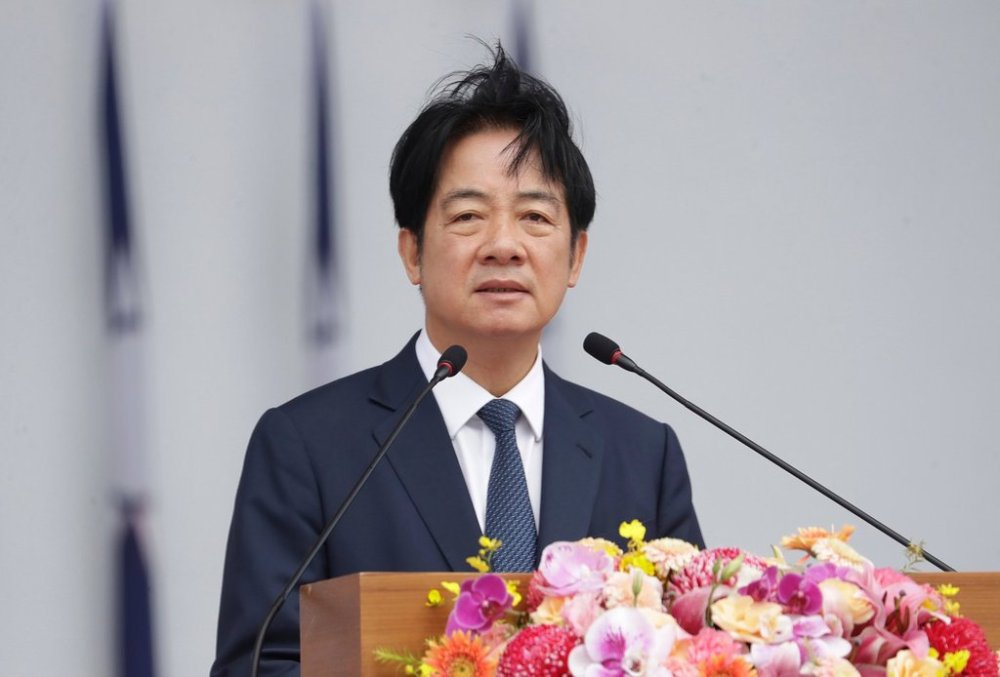Taiwan announces special budget of $40 billion for arms purchases to bolster defense
Advertisement
Read this article for free:
or
Already have an account? Log in here »
To continue reading, please subscribe:
Monthly Digital Subscription
$0 for the first 4 weeks*
- Enjoy unlimited reading on winnipegfreepress.com
- Read the E-Edition, our digital replica newspaper
- Access News Break, our award-winning app
- Play interactive puzzles
*No charge for 4 weeks then price increases to the regular rate of $19.00 plus GST every four weeks. Offer available to new and qualified returning subscribers only. Cancel any time.
Monthly Digital Subscription
$4.75/week*
- Enjoy unlimited reading on winnipegfreepress.com
- Read the E-Edition, our digital replica newspaper
- Access News Break, our award-winning app
- Play interactive puzzles
*Billed as $19 plus GST every four weeks. Cancel any time.
To continue reading, please subscribe:
Add Free Press access to your Brandon Sun subscription for only an additional
$1 for the first 4 weeks*
*Your next subscription payment will increase by $1.00 and you will be charged $16.99 plus GST for four weeks. After four weeks, your payment will increase to $23.99 plus GST every four weeks.
Read unlimited articles for free today:
or
Already have an account? Log in here »
TAIPEI, Taiwan (AP) — Taiwan’s President Lai Ching-te on Wednesday announced a special $40 billion budget for arms purchases, including to build a Taiwan Dome, an air defense system with high-level detection and interception capabilities, as the U.S. pressures the island to increase its defense spending.
The budget will be allocated over eight years, from 2026 to 2033, and comes after Lai already pledged to raise defense spending to 5% of the island’s GDP, as part of an ongoing strategy amid China’s threats of invasion.
“China’s threats to Taiwan and the Indo-Pacific region are escalating,” Lai said Wednesday. “Recently, various types of military intrusions, maritime gray zones and disinformation campaigns have been occurring in Japan, the Philippines and around the Taiwan Strait, causing deep unease and distress to all parties in the region.”

“Taiwan, as the most important and most critical part of the first island chain, must demonstrate our determination and take on a greater responsibility in self-defense,” he said, referring to the string of islands stretching from Japan’s East China Sea islands through the Philippines in the Pacific Ocean.
Currently, Taiwan has set an increase in its defense budget to 3.3% of its GDP for 2026, allocating $949.5 billion New Taiwan Dollars ($31.18 billion). U.S. President Donald Trump has demanded Taiwan raise its defense spending to as much as 10% of GDP, a proportion well above what the U.S. or any of its major allies spend.
Taiwan, a self-ruled island, is claimed by China. In recent years, China has deployed warplanes, navy ships and drones toward the island on a daily basis in military exercises as part of its efforts to exert pressure.
Lai had previewed the announcement in an op-ed for the Washington Post on Wednesday, saying the special budget would be used to purchase arms from the U.S. He told reporters Wednesday, however, that the budget has nothing to do with the government’s ongoing tariff negotiations with the U.S.
Wellington Koo, Taiwan’s minister of national defense, said Wednesday the $40 billion is an upper limit for the special budget and that it will be used to buy precision-strike missiles and toward the joint development and procurement between Taiwan and the U.S. of equipment and systems.
Lai also said his government would focus on finding ways to increase its defense against Beijing’s “psychological warfare” as China attempts to “weaken our unity.” He said the government will monitor and increase public awareness of China’s interference attempts during major events and elections.
Lai also commented on an escalating feud between China and Japan, which started after Japan’s conservative leader said the country might get involved militarily if China makes a move against Taiwan. The remarks incensed Beijing. Lai said Japanese Prime Minister Sanae Takaichi ‘s comments appeared to be focused largely on the stability of the region.
“We hope China can understand that each country in the Indo-Pacific region has a responsibility to its peace and stability, and that we especially hope China, as a major power in the region, would also demonstrate the responsibilities of a major power,” Lai said. “Instead, it has continued to raise threats and attacks toward neighboring countries. This is not the way a responsible major power acts.”
___
AP writer Huizhong Wu reported from Bangkok.

